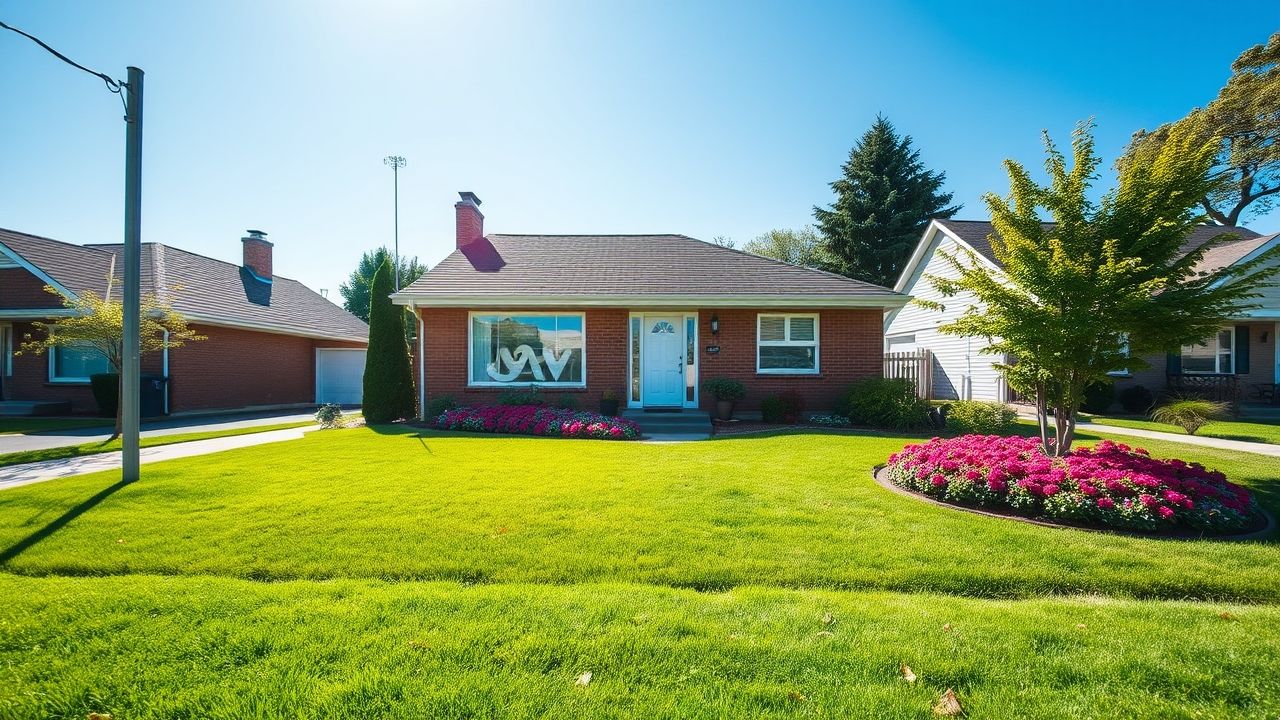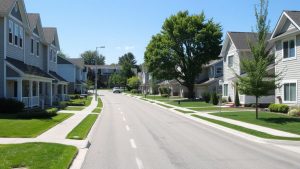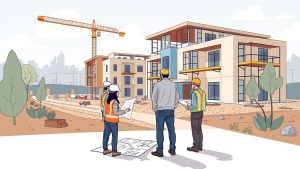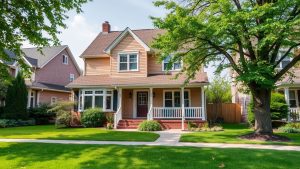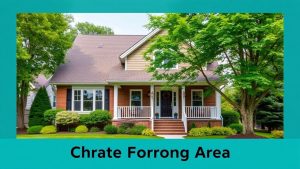Are you thinking about buying a new home? That’s super exciting! But did you know some homes are like secret money makers?
Finding a house you love is important. But finding a house that other people will love later when you want to sell it is also super important. This is called resale value. It’s like picking a toy that you know your friends will want to trade for later!
This guide will help you become a detective. You’ll learn how to spot clues that tell you if a home in places like Milton, Mississauga, Georgetown, or Guelph will be worth more money in the future. Choosing the right home means you can be happy living there and happy when it’s time to move.
What is Home Resale Value Anyway?
Imagine you buy a toy car today for $5. Next year, maybe lots of kids want that same toy car, and it’s hard to find. You might be able to sell your toy car for $8! That extra $3 is like resale value.
A home’s resale value is how much money people might pay for your house in the future. Some things make a house more popular and worth more money down the road. Other things can make it harder to sell.
Think of it like this: You buy a house now. You live in it, make memories, maybe paint the walls your favorite color. Then, one day, you decide to move. You want to sell your house for a good price, maybe even more than you paid for it! That’s good resale value.
Knowing about resale value helps you make a smart choice, like picking the winning horse in a race. It helps your money grow!
Why Should You Care About Resale Value When Buying?
You might think, “I’m buying this house to live in, not to sell right away!” And that’s okay! But life can change. Maybe you’ll get a new job in a different city. Maybe your family will grow, and you’ll need more space. Maybe you’ll just want a change!
Most people don’t stay in the same house forever. When it’s time to sell, you want it to be easy. You also want to get back the money you put into the house, and maybe even make some extra money. This is where buying a home for future value comes in.
- It’s a Big Investment: Buying a house is likely the biggest purchase you’ll ever make. You want that investment to be safe and maybe even grow.
- Easier Selling Later: Homes with good resale value usually sell faster. You won’t be stuck waiting for a buyer.
- More Money in Your Pocket: If your home’s value goes up, you get more money when you sell. You can use that money for your next home or other dreams.
- Peace of Mind: Knowing you bought a smart home feels good!
So, even if you plan to stay for many years, thinking about resale value now is like giving your future self a big high-five.
Location, Location, Location! (Factors Affecting Home Appreciation)
You’ve probably heard people say this. It’s the number one rule in real estate! Where a house is located makes a HUGE difference in its resale value real estate.
Think about it: You can change the paint color, you can fix the kitchen, but you can’t pick up the house and move it to a better street!
Good Neighbourhoods in the GTA
What makes a neighbourhood “good” for resale value in places like Milton, Mississauga, Georgetown, or Guelph?
- Feeling Safe: People want to live where they feel safe walking around, day or night.
- Looking Nice: Are the other houses on the street looked after? Are the yards tidy? A street where neighbours care about their homes usually means values stay strong.
- Getting Better: Is the neighbourhood improving? Are new shops opening? Are parks being cleaned up? Buying in an area that’s getting better (sometimes called an “up-and-coming” area or an Ontario action market) can be a great investment. You buy when prices are lower, and as the area gets nicer, your home’s value goes up. Market watchers suggest areas like Milton could see home values increase by 4-6% in 2025 due to growing demand.
- Quiet Streets: Most people prefer streets that aren’t super busy with traffic. A home on a quiet side street or cul-de-sac often has better resale value than one on a main road.
Close to Fun Stuff? (Amenities)
People like living close to things they need and enjoy. This adds to a home’s desirability.
- Parks and Playgrounds: Great for families and anyone who likes being outside.
- Shops and Restaurants: Being able to walk or take a short drive to get groceries or a bite to eat is a big plus.
- Community Centres: Places for swimming, sports, or classes add value.
- Entertainment: Near movie theatres, libraries, or other fun spots?
Think about what makes your life easier and more fun. Chances are, future buyers will like those same things!
Easy Commute? (Transportation)
Especially in the GTA, how easy it is to get to work or other places matters a lot.
- Highway Access: Is it easy to get onto major highways like the 401, 407, or QEW?
- Public Transit: Is the home near a GO Train station (like in Milton or Georgetown) or bus routes (common in Mississauga and Guelph)? This is a huge bonus for many buyers.
- Traffic: How bad is traffic during rush hour? While you can’t avoid it completely, some locations are much better than others.
A house with good connections makes life easier, and that boosts its home selling potential.
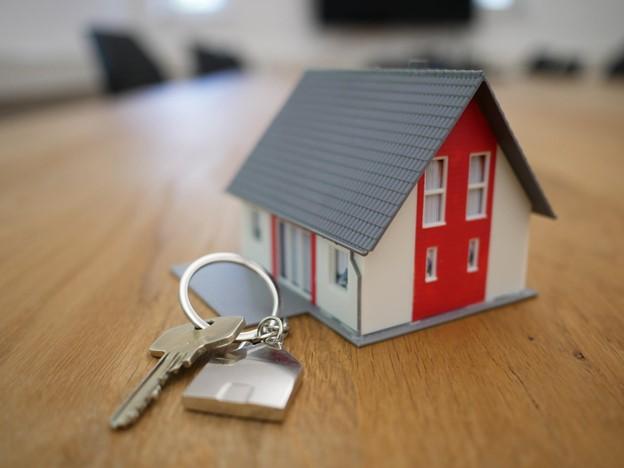
Top Schools Mean Top Value (What Makes a House Desirable)
This one is super important, even if you don’t have kids and never plan to!
Why Schools Matter (Even if You Have No Kids)
Many families with children choose where to live based only on the schools. They want their kids to go to the best possible schools.
- Bigger Pool of Buyers: If a home is in an area with great schools, you’ll have way more people interested in buying it when you sell. Families will be lining up!
- Higher Prices: Homes in top school districts often sell for more money than similar homes in areas with lower-rated schools.
- Stable Value: School quality doesn’t usually change overnight. Good schools tend to stay good, which helps keep home values stable or growing.
Sarah Chen, a top realtor in Mississauga, often tells buyers, “Think about the next buyer when you choose your home. What will they love about it? Good schools are almost always at the top of the list for families.”
How to Check School Scores Near Milton or Guelph
It’s easy to find out about schools!
- School Board Websites: Look up the local school board (like Peel District School Board for Mississauga, Halton District School Board for Milton, Upper Grand District School Board for Guelph, Halton Catholic District School Board, etc.). They often have maps showing which school serves which address.
- Fraser Institute: This organization releases annual rankings of elementary and secondary schools in Ontario. You can search for schools in the areas you’re interested in (like Georgetown or Guelph) and see how they compare. Just search online for “Fraser Institute Ontario school rankings”.
- Talk to People: Ask your real estate agent. Talk to people who live in the neighbourhood. They can often give you a good feel for the local schools.
Don’t skip this step! Checking the schools is a key part of predicting home value growth.
Does the House Look Nice Outside? (Curb Appeal)
Imagine you’re walking down the street looking at houses. Which ones catch your eye? Probably the ones that look neat, tidy, and welcoming from the outside. That’s curb appeal!
First Impressions Count!
The outside of the house is the very first thing buyers see, whether they’re driving by or looking at pictures online. If it looks messy or uncared for, they might not even want to see the inside!
Good curb appeal means:
- Neat Lawn: Grass is cut, no weeds everywhere.
- Tidy Garden: Flowers or bushes look healthy.
- Clean Paint: The house paint isn’t peeling or faded.
- Good Roof: The roof looks like it’s in decent shape.
- Welcoming Entry: The front door looks nice, maybe there’s a clean porch light.
A house with good curb appeal screams, “I’m well taken care of!” This makes buyers feel more confident and excited.
Easy Fixes vs. Big Problems
When you’re looking at a house, think about its curb appeal potential.
- Easy Fixes: Things like overgrown bushes, a messy lawn, or a front door that needs painting are usually easy and cheap to fix. If a house has potential, don’t let small curb appeal issues scare you away. You can improve these yourself!
- Big Problems: Things like a crumbling foundation, a roof that clearly needs replacing, or siding that’s falling apart are expensive problems. Also, look out for strange things you can’t easily change, like the house being right next to a noisy factory or having a very strange shape.
If the outside has big issues that are hard or expensive to fix, it could hurt the home’s resale value real estate potential.
What’s the Inside Like? (Best Home Features for Resale)
Okay, you’ve checked the location, the schools, and the outside. Now, let’s step inside! The layout and features inside the house also play a big role in how much buyers will like it later.
A Floor Plan That Works (Good Investment Home Features)
A floor plan is like the map of the inside of the house. How do the rooms connect? Does it feel easy to move around?
- Good Flow: Does the layout make sense? Can you easily get from the kitchen to the dining room? Does the front door open into a welcoming space? A house with a weird or confusing layout can be hard to sell.
- Practical Spaces: Are the rooms a good size? Is there enough storage (closets!)? Is the kitchen functional?
How Many Bedrooms?
Generally, more bedrooms mean more potential buyers.
- Three Bedrooms: This is often the sweet spot. It appeals to families, couples who want an office or guest room, and even singles or roommates.
- Two Bedrooms: Can be great for singles, couples, or retirees, but limits the number of families who might be interested.
- Four+ Bedrooms: Good for larger families, but might be too much space (and too expensive) for some buyers.
Think about the typical buyer in the area you’re looking (like Mississauga or Milton). Are there lots of families? Then a 3 or 4-bedroom home might have better home selling potential.
One Floor or Two?
This depends on the buyer, but some layouts have wider appeal.
- One-Story Homes (Bungalows/Ranches): These are popular with many people! Older buyers love them because there are no stairs. Families with very young kids sometimes prefer them too. They often have great resale value because they appeal to a wide age range.
- Two-Story Homes: Very common and popular, especially for families who like having bedrooms separate from the living areas. A common issue can be if the main bedroom is on a different floor from the other bedrooms – some families with young children don’t like this.
Open Spaces?
These days, many buyers like homes where the kitchen, living room, and dining area flow together without too many walls. This is called an “open concept”.
- Open Concept: Feels spacious, good for entertaining, easier to watch kids. These are generally very popular and have good resale value.
- Traditional Layout: Some people still prefer separate rooms. But too many small, closed-off rooms can make a house feel dark and cramped.
A floor plan that appeals to lots of different people is one of the best home features for resale.
Is the Neighbourhood Safe and Sound?
Feeling safe is a top priority for almost every home buyer. No one wants to worry about crime or feel uncomfortable on their own street.
Checking for Safety
How can you tell if a neighbourhood in Georgetown or Guelph is safe?
- Walk or Drive Around: Visit the neighbourhood at different times of the day and night. Does it feel comfortable? Are people out walking? Do homes look secure?
- Online Crime Maps: Many police services (like Halton Regional Police or Peel Regional Police) have online maps that show recent crime reports in different areas. This gives you real data.
- Talk to Neighbours: If you see people outside, politely ask them how they like living there and if they feel safe.
- Look for Clues: Are there lots of security bars on windows? Does graffiti seem common? These could be signs of higher crime, though not always.
Buying in a neighbourhood known for being safe is a huge plus for resale value.
Quiet Streets are Golden
Most buyers prefer peace and quiet.
- Busy Roads: Homes right on major roads often sell for less and take longer to sell because of noise and traffic.
- Near Noise Sources: Is the house very close to a highway, train tracks, airport flight path, or noisy businesses? This can negatively affect resale value.
- Quiet Side Streets: Homes on quieter residential streets, especially cul-de-sacs (dead-end streets), are usually more desirable.
Listen carefully when you visit a potential home. What do you hear? Will future buyers like the soundscape?
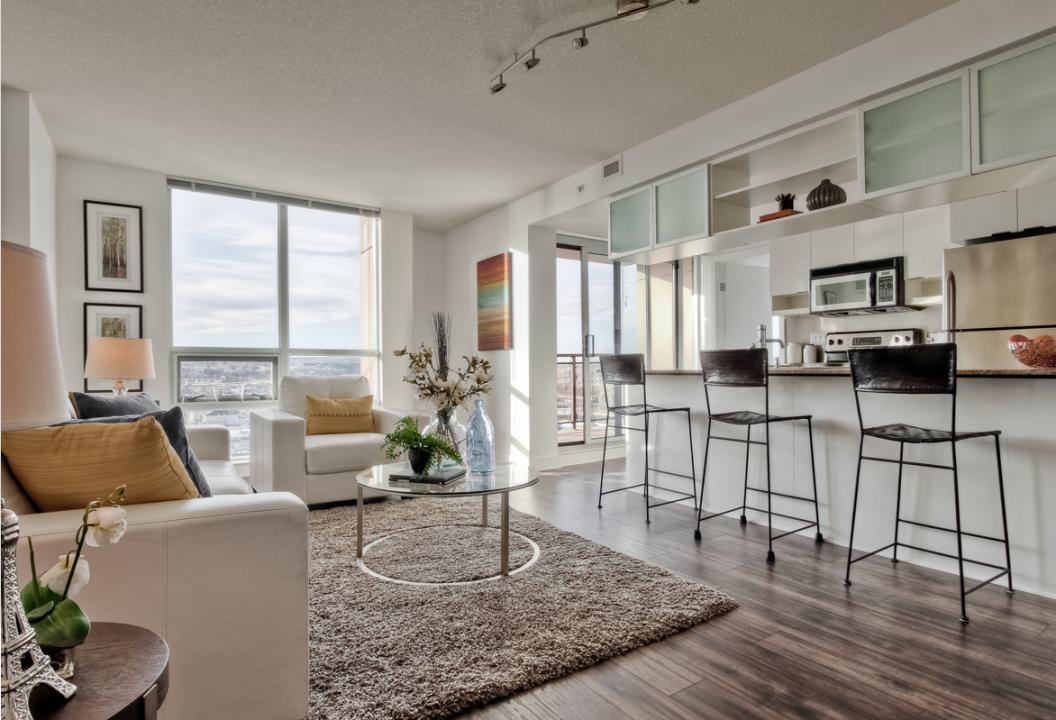
Predicting Home Value Growth in the GTA
Okay, so you know what makes a house desirable now. But how do you guess if its value will go up in the future? This involves looking at bigger trends, especially for GTA property appreciation.
Watching Market Trends (GTA Property Appreciation)
The housing market goes up and down, but some areas tend to grow faster than others.
- Economic Growth: Are jobs being created in the area (like Milton or Mississauga)? A strong local economy usually leads to rising home values.
- Population Growth: Are more people moving into the city or region? More demand for housing pushes prices up.
- Development Plans: Are there plans for new big projects like shopping centers, community facilities, or transit lines (like GO Train expansion)? These can boost nearby property values.
- Interest Rates: While you can’t control them, lower interest rates generally make it easier for people to buy homes, increasing demand. Keep an eye on financial news.
Your real estate agent can help you understand current factors affecting home appreciation in the specific GTA towns you’re considering.
Up-and-Coming Areas (Action Markets Ontario)
Sometimes, the biggest gains come from buying in areas that are about to become popular. These are sometimes called Action Markets.
How to spot them?
- Renovations Happening: Are lots of people fixing up older homes in the neighbourhood?
- New Businesses Opening: Are cool coffee shops, restaurants, or boutiques starting to appear?
- Young Professionals/Artists Moving In: Often, these groups are the first to discover and revitalize an area.
- Lower Prices (For Now): Prices are usually lower than in already popular neighbourhoods, but you can see the potential for growth.
Buying in an up-and-coming area requires a bit more research and vision, but it can lead to excellent resale value down the road. Ask your realtor about potential Action Markets in Ontario within the GTA or surrounding areas like Guelph.
Warning Signs! Homes That Might Lose Value
Just as important as knowing what to look for is knowing what to avoid. Some houses have red flags that signal poor resale value potential.
On Sale Forever?
Has the house been listed for sale for a very long time (months and months) compared to other homes in the area? This is often a sign that something is wrong. Maybe it’s overpriced, has a weird layout, is in a bad location, or needs major repairs. If other homes are selling quickly and this one isn’t, find out why before you consider buying it.
Priciest House on the Street?
It might feel cool to own the biggest, fanciest house on the block, but it’s usually not a good idea for resale value. Why?
- Less Room to Grow: Your home’s value is partly tied to the homes around it. If yours is already the most expensive, it has less potential to increase in value compared to the cheaper homes nearby.
- Harder to Sell: Buyers looking in that price range might prefer to buy a less expensive house on a street where all the homes are similarly fancy, rather than the outlier on your street.
It’s usually smarter to buy the least expensive house on the best block, rather than the most expensive house on an average block.
Bad Location Clues
We talked about good locations, but watch out for bad ones!
- Right Next to Undesirable Things: Backing onto a busy highway, power lines, a dump, a cemetery, or noisy commercial properties can seriously hurt resale value.
- Declining Neighbourhood: Are stores closing down? Do many homes look neglected? Is crime perceived to be increasing? These are warning signs.
- Bad School Zone: As we discussed, being tied to poorly-rated schools limits your future buyers.
Needs LOTS of Work? (Best Upgrades for Resale – What NOT to Buy)
A fixer-upper can sometimes be a good deal, but be careful.
- Major Systems: Problems with the really important stuff – roof, foundation, electrical wiring, plumbing, heating/cooling (HVAC) – are very expensive to fix. If a house needs multiple major updates, the cost might wipe out any potential profit.
- Cosmetic vs. Critical: Painting and new carpets are easy fixes (best upgrades for resale are often simple ones!). Replacing all the windows, re-doing all the plumbing, or fixing a leaky foundation are huge jobs.
Get a thorough home inspection! If the inspection reveals too many big, expensive problems, the home might not be a good investment home feature unless you’re getting it for a very, very low price and have the budget for repairs.
Buying a Home for Future Value: Quick Tips
Let’s wrap up the key detective clues for finding a home with great resale potential in the GTA:
- Location is King: Choose the best neighbourhood you can afford, focusing on safety, schools, and convenience (commute, amenities).
- Think About Schools: Good schools boost value, period. Check the ratings.
- Look for Curb Appeal: Make sure the house looks inviting from the street (or has potential to).
- Check the Floor Plan: Does it flow well? Are there enough bedrooms (3 is often ideal)? Is it practical for many types of buyers?
- Safety First: Research crime rates and get a feel for the neighbourhood’s safety.
- Consider the Future: Is the area growing or declining? Are there planned improvements?
- Avoid Red Flags: Steer clear of houses on the market forever, the priciest home on the block, bad locations, or those needing massive repairs (unless the price reflects it).
- Get an Inspection: Always, always get a professional home inspection.
Frequently Asked Questions (FAQ)
Q1: What is the single most important factor for resale value?
A1: Location! This includes the neighbourhood’s safety, reputation, quality of schools, and convenience (proximity to amenities, transit, highways).
Q2: Does the age of the home affect resale value?
A2: Yes, but it’s tricky. Older homes can have charm but might need more updates. Newer homes might need less work but could be in less established areas. Condition and location often matter more than exact age. A well-maintained older home in a great location can have excellent resale value.
Q3: How much does kitchen and bathroom condition matter for resale?
A3: A lot! Kitchens and bathrooms are key areas buyers focus on. Updated, clean, and functional kitchens and bathrooms are some of the best home features for resale. You don’t necessarily need brand-new luxury, but they should be appealing and in good working order.
Q4: Should I buy a smaller home in a great area or a bigger home in a less desirable area?
A4: Most experts recommend buying the smaller home in the great area. Location is harder to change, and values in better neighbourhoods tend to hold up better and appreciate more reliably. This helps with GTA property appreciation.
Q5: Do renovations always increase resale value?
A5: Not always. Some renovations (like updated kitchens/baths, fresh paint) usually offer a good return. Others (like adding a swimming pool or very personalized/trendy upgrades) might not add as much value as they cost. Focus on updates that appeal to a wide range of buyers. Simple, clean, and functional are often the best upgrades for resale.
Q6: How can I research neighbourhood trends in Milton or Mississauga?
A6: Talk to your real estate agent – they have local expertise. Check municipal websites for development plans. Read local news. Drive around and observe – are businesses opening? Are homes being renovated? Look at recent sales data to see how prices are moving.
Buying a home is a big step, but it doesn’t have to be scary. By thinking about these clues, you can choose a home in the GTA that you’ll love living in and that will be a smart investment for your future. You’re not just buying a house; you’re building a foundation for your financial well-being.
Ready to find that perfect home that’s also a great investment? Knowing what to look for gives you power. Use these tips as you explore homes in Milton, Mississauga, Georgetown, Guelph, or other amazing Ontario communities. Happy house hunting!
Thinking about buying your dream home in the GTA?
Finding the right place is just the start. Make sure it’s a smart investment too! We can help you navigate the market in Milton, Mississauga, Georgetown, Guelph, and beyond.
Let us guide you through the process and find a home you’ll love now and benefit from later. We’re committed to helping you make the best choice.
Get our FREE Home Buyer’s Guide packed with more tips and secrets! Plus, learn how you could SAVE $10,000 to $50,000 when you buy your home with us – Guaranteed!
Click here to get started: https://www.loveyourhomeguaranteed.ca/
Don’t wait! Your future self will thank you for making a smart move today.

